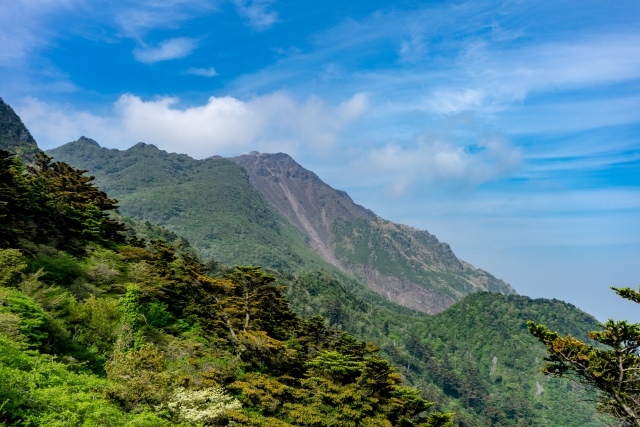Tōge (峠 – Mountain Pass)
Tōge
峠
Mountain passes or boundaries between up and down ways are called tōge (峠).
山の上りと下りの境界のことを、日本語で「峠」と言います。
It is said that tōge comes from tamuke (手向け), which means to offer things to Shinto and Buddhist deities — there was the fact that visitors offered things to dōsojin (道祖神 – “ancestor kami protecting the safety of roads”).
「峠」は神仏に物を供えることを意味する「手向け(たむけ)」から来ており、旅行者が道祖神(道の安全を守る神)に手向けたことに由来すると考えられています。
Incidentally, 峠 is the kanji invented in Japan.
ちなみに、漢字「峠」は和製漢字です。
This kanji consists of three parts; 山 meaning “mountain,” 上 meaning “up” and 下 meaning “down.”
“Mountain” を意味する「山」、”up” を意味する「上」、そして “down” を意味する「下」で構成されます。
The reason why this kanji was made in Japan might be that the Japanese had the environment surrounded by mountains.
このような漢字が生まれたのは、日本が山に囲まれていたためかもしれません。




